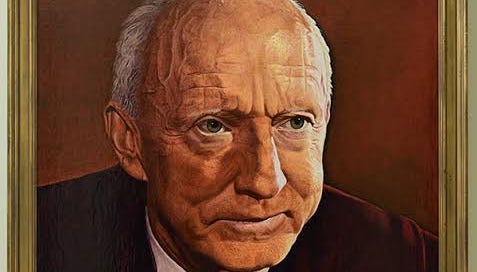Justice Hugo Black carried around a copy of the US Constitution in his back pocket. He is said to have been a textualist, or strict constructionist, meaning he thought that the words of the Constitution should be given their plain meaning. With that in mind, let’s take a look at the First Amendment of the US Constitution of 1790:
Congress shall make no law respecting an establishment of religion, or prohibiting the free exercise thereof; or abridging the freedom of speech, or of the press; or the right of the people peaceably to assemble, and to petition the Government for a redress of grievances.
If we fairly parse the language of the First Amendment, we easily, and without any credible opposition, see that there are at least1 five distinct clauses in the First Amendment:
(1) Congress shall make no law respecting an establishment of religion . . . .
(2) Congress shall make no law . . . prohibiting the free exercise [of religion] . . .
(3) Congress shall make no law . . . abridging the freedom of speech . . .
(4) Congress shall make no law . . . abridging the freedom . . . of the press . . .
(5) Congress shall make no law . . . abridging . . . the right of the people peaceably to assemble, and to petition the Government for a redress of grievances.
One cannot miss (I even placed it in bold font) that each clause of the First Amendment is a limitation upon Congress, NOT on who is exercising their religion, speaking, publishing, or petitioning. Recall that the foundation of our country is the self-evident “proposition that all men are created equal.”2
The First Amendment is NOT a grant of rights, but is rather a limitation on Congress preventing the abridgment of unalienable rights endowed by the people’s creator.3
What does the First Amendment not say? It does not say “Congress shall make no law abridging the freedom of speech of citizens.” Equally unavailable is any argument that an act of Congress authorizes adverse action against a non-citizen based upon his or her speech, since the text of the First Amendment explicitly makes such a law unconstitutional.
Back to the beginning: how do we spot a strict constructionist? It is someone who takes the plain meaning of the Constitution at face value. “Make no law” means make no law. So what do we call a person who is willing to torture a law to apply to individuals or points of view that are loathsome4, despite this textual prohibition?
That’s easy — we call that person a hypocrite.5
We can leave for another day whether the “and” conjunction (rather than “or”) means that the right to petition the Government for a redress of grievances is circumscribed by a requirement of peaceable assembly. One need only look to the January 6 riot at the Capitol to understand the import of this distinction. See, De Jonge v. Oregon, 299 U.S. 353 (1937).
Abraham Lincoln, Gettysburg Address (1864).
The preamble to the Declaration of Independence, "[w]hen in the Course of human events, it becomes necessary for one people to dissolve the political bands which have connected them with another, and to assume among the powers of the earth, the separate and equal station to which the Laws of Nature and of Nature's God entitle them“ makes it incontrovertible that Natural Law, as it was expounded at the time of the Revolution by John Locke and others, was the source of the self-evident truth that all men “are endowed by their Creator with certain unalienable Rights, that among these are Life, Liberty and the pursuit of Happiness.” It is inescapable, then, that the freedom of speech is an unalienable Right of “all” humanity. Further, Alexander Hamilton, in Federalist 84, makes it clear that the structure of the Constitution was to assign express powers to the Federal government, and is not to be construed as the source of rights retained by the people.
So that there is no mistake, this writer most certainly considers the pro-Hamas point of view of current pro-Palestinian demonstrators to be loathsome, the argument that Israelis are colonizers while Palestinians are indigenous to be wrong-headed identity politics with no historical or academic basis, and calls to “free Palestine” from the ‘River to the Sea” to be a repehensible call for the murder, slaughter, rape and mutilation of the Jewish population of Israel. Nevertheless, what makes America great is precisely what is at stake here. Congress may make no law abridging the freedom of speech.
This all arises because of the pending litigation in American Association of University Professors, et al. v. Rubio, et. al., Civ. No. 25-10685-WGY (D. Mass). The complaint is available here, and the 4/29/25 ruling denying in part, and allowing in part, the Government’s motion to dismiss is available here. U.S. District Judge William Young of Massachusetts, a Reagan appointee, has written a well reasoned ruling recognizing “The Public Officials’ reliance on case law from the height of the second Red Scare era . . . is misplaced, and this Court assumes instead that noncitizens lawfully present in the United States have at least the core rights protected by the First Amendment, chief among them the right to speak on political subjects at least where such speech poses no immediate threat to others.” Id., p. 57.



